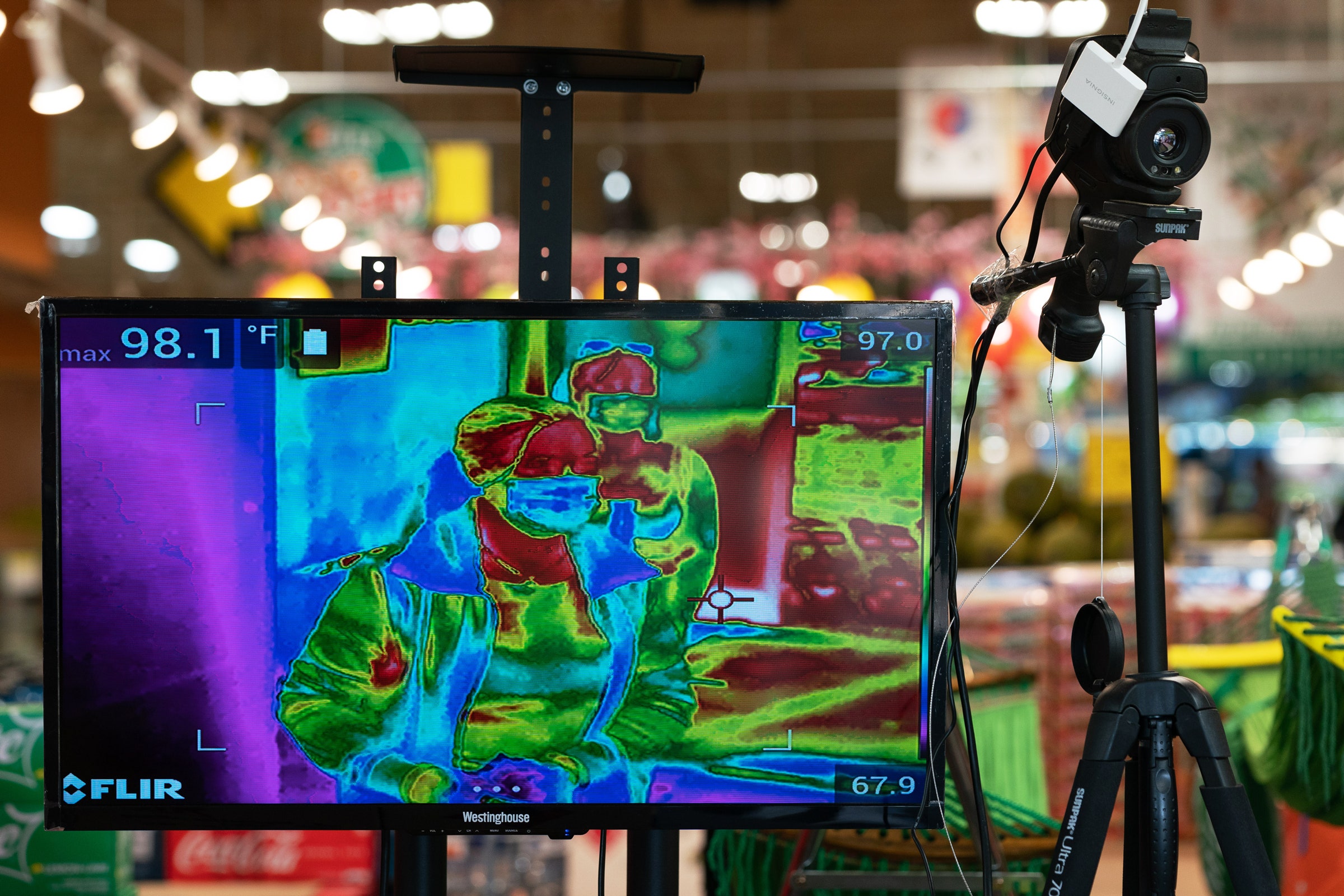Last Week in AI #63
AI hype on Covid-19, social robots for kids, AI writes music and poems, and more!

Image credit: Elijah Nouvelage / Bloomberg / Getty Images / via Wired
Mini Briefs
Artificial Intelligence Won’t Save Us From Coronavirus
Many companies have rushed to proclaim how their AI systems are being used to fight the current Covid-19 outbreak. While some applications, like predicting viral spread from flight patterns, have been deployed, many of these AI tools are not yet ready for prime time.
For example, computer vision models have reportedly achieved 96% Covid-19 diagnosis accuracy on CT-scans. However, this number is “unbelievably high” without “external validation,” and experts agree that “CT scans should not be used as ‘first-line tests to diagnose Covid-19.’” Automated cameras to detect fever from thermal images are also not reliable enough, as the results are affected by factors like ambient temperature and humidity. As such, the CDC does not recommend using thermal imaging alone as a detector for fever.
AI is a widely applicable technology with tremendous potential, but its advantages need to be hedged in a realistic understanding of its limitations.
Meet Moxie, a Social Robot That Helps Kids With Social-Emotional Learning
Embodied, a robotics startup, is working on Moxie, a social robot “designed to help all kids improve their social-emotional and communication skills through relatively short daily interactions.” Moxie will guide a child through a series of conversations and activities, which are produced by its in-house team of experts in psychology and child development. The company has already tested the robot with a hundred families for more than a year, and it expects to launch the product in October.
There are many privacy and ethical concerns with social robots that interact with children. Embodied addresses some of this by performing “90 percent” of processing (including all camera images) on the device, and not in the cloud, while data uploaded to the cloud is first anonymized. Moxie is not cheap - it will sell for $1500 plus a $60 per month subscription fee for new interactive content.
But remember, this isn’t a toy, it’s a tool, and if it’s something your kid needs, or could benefit from, it may very well be more than worth the cost.
Podcast
Check out our weekly podcast covering these stories! Website | RSS | iTunes | Spotify | YouTube
News
Advances & Business
-
OpenAI introduces Jukebox, a new AI model that generates genre-specific music with lyrics - Artificial intelligence research laboratory OpenAI today debuted a new generative model that’s able to make music called Jukebox. It’s technologically impressive, even if the results sound like mushy versions of songs that might feel familiar.
-
This AI Poet Mastered Rhythm, Rhyme, and Natural Language to Write Like Shakespeare - “Deep-speare” crafted Shakespearean verse that most readers couldn’t distinguish from human-written poems
-
MIT researchers propose architecture that cuts carbon footprint of neural networks - Researchers at the MIT have developed an optimization strategy for deep neural networks (DNNs) that automatically prepares them for deployment on thousands of different edge devices, reducing the carbon footprint of both training and inference.
-
The pandemic is bringing us closer to our robot takeout future - “We saw that business double overnight,” startup says of UK grocery deliveries.
-
Facebook claims its new chatbot beats Google’s as the best in the world - It has also open-sourced the AI system to spur further research.
-
Common Sense Comes Closer to Computers - The problem of common-sense reasoning has plagued the field of artificial intelligence for over 50 years. Now a new approach, borrowing from two disparate lines of thinking, has made important progress.
Concerns & Hype
-
Google’s medical AI was super accurate in a lab. Real life was a different story. - If AI is really going to make a difference to patients we need to know how it works when real humans get their hands on it, in real situations.
-
How to make sense of 50,000 coronavirus research papers - Artificial intelligence experts hope that the CORD-19 dataset of over 50,000 coronavirus research papers will lead to breakthroughs.
-
CEO of Surveillance Firm Banjo Once Helped KKK Leader Shoot Up a Synagogue - Documents reveal Damien Patton, CEO of SoftBank-backed Banjo, admitted to being a neo-Nazi skinhead in his youth.
-
Robots Will Replace Soldiers In Combat, Says Russia - For Russia, the question of robots taking over the role of soldiers on the battlefield is a matter of when, not if.
Expert Opinions & Discussion within the field
- The surge of sensationalist COVID-19 AI research - There seems to be a tendency to hastily use imperfect and questionable data to train an AI solution for COVID-19, a dangerous trend that not only does not help any patient or physician but also damages the reputation of the AI community.
Awesome Videos
That’s all for this week! If you are not subscribed and liked this, feel free to subscribe below!


